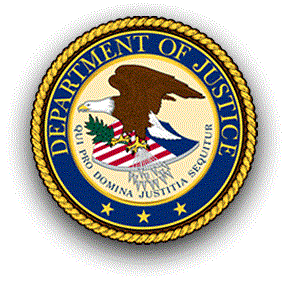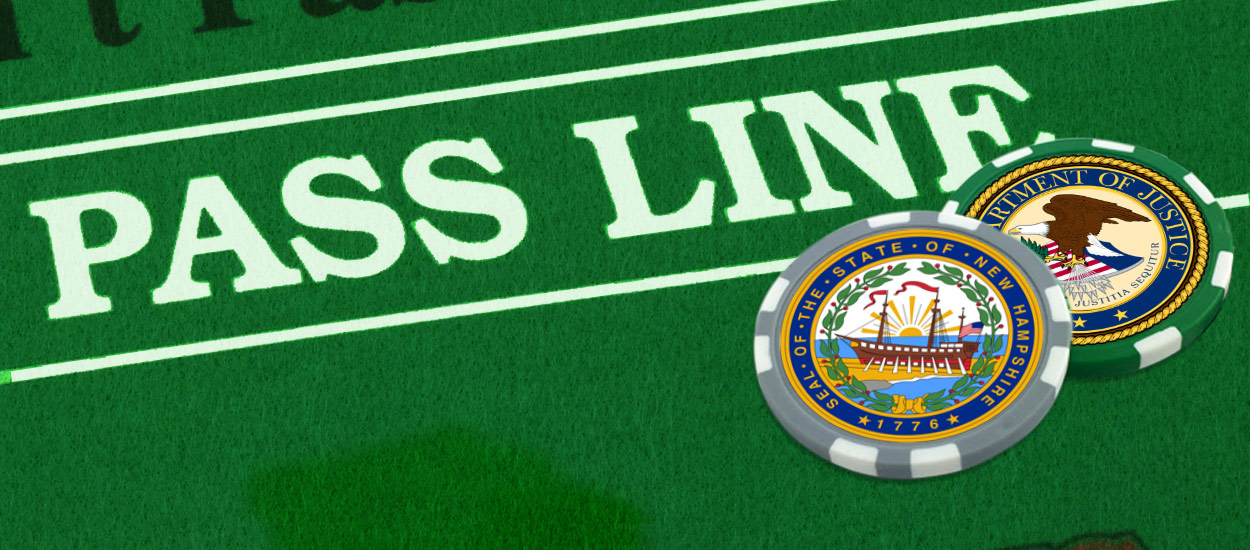The Department of Justice (DoJ), led by Attorney General William Barr, was supposed to file its first brief to the First Circuit Court of Appeals this week, explaining why they believe Judge Barbadoro erred in his ruling that disallowed the revised DoJ opinion announced in January of 2019 for the United States District Court for the District of New Hampshire. But, the DoJ asked for an extension and the deadline was pushed back to December 20th. It's uncertain why the DoJ requested the extension, although the logical assumption is that they don’t feel like they have much of a case and are looking for more straws to grasp at as they try to provide justification to the courts for an appeal that is futile and unnecessary. For those who are unfamiliar with the facts that led up to the June ruling by Judge Barbadoro here is history of how the Wire Act started and how we got to the current situation. The Wire Act was written in 1961 by Attorney General Robert Kennedy as a means to stop mobsters and criminals from using the wires to conduct illegal bookmaking operations, the profits of which were used to fund other illegal activities. It was a common practice for mobsters to take wagers on horse racing or sporting bets over the phone, but since there was no real law in place for the police to arrest them for doing so, the Wire Act was created which made it a federal offense to use the telephone or telegraph to accept wagers on sporting events or contests. The law worked, as various members of the mob were arrested for violating the Wire Act and the amount of illegal bookmaking dropped considerably. The Wire Act was really never evaluated again until about 1996 when the Internet became a viable form of communication and Internet gambling became prolific.
The Wire Act was written in 1961 by Attorney General Robert Kennedy as a means to stop mobsters and criminals from using the wires to conduct illegal bookmaking operations, the profits of which were used to fund other illegal activities. It was a common practice for mobsters to take wagers on horse racing or sporting bets over the phone, but since there was no real law in place for the police to arrest them for doing so, the Wire Act was created which made it a federal offense to use the telephone or telegraph to accept wagers on sporting events or contests. The law worked, as various members of the mob were arrested for violating the Wire Act and the amount of illegal bookmaking dropped considerably. The Wire Act was really never evaluated again until about 1996 when the Internet became a viable form of communication and Internet gambling became prolific.
Attempts to make Internet gambling illegal such as John Kyl’s Internet Gambling Prohibition law failed to pass both houses, so in 2001 the DoJ under President George W. Bush gave its opinion that the Wire Act applied to all forms of communication, including the Internet and was applicable to all forms of gambling. That interpretation was never accepted by the courts, however, as several cases were dismissed on the grounds that the Wire Act applies only to sports betting. The courts agreed that the Internet does apply as a communication device under the Wire Act (which was affirmed in the Jay Cohen and World Sports Exchange case) but did not agree that the Wire Act applied to all forms of gambling.
The first and most talked about case in this regard was the 2002 Mastercard case where several plaintiffs led by Larry Thompson stated that they purchased thousands of dollars in chips at online casinos using Mastercard as a payment method and lost the money. The lawsuit claimed that the banks, along with the casino sites, created a “worldwide gambling enterprise” that facilitated illegal gambling on the Internet by credit cards. Consequently, they argued that the activity violated several statutes and most specifically the Wire Act. The banks naturally fought back saying they had no control over how people used their money and the District Court in Louisiana threw out the lawsuit saying that the Wire Act only applied to sports betting or contests, so buying casino chips is not a violation of the Wire Act, (ignoring the DoJ opinion). The case was appealed to the Fifth Circuit court of Appeals, but they upheld the district court ruling, stating that the Wire Act could not be used to excuse debts in this case since the Wire Act only applies to sports betting or contests. As a last gasp attempt, the plaintiffs argued that the name of the casino they played at had “Sportsbook” in its name, but the court said that fact was irrelevant since the credit cards they used were for the purchase of chips for casino games.
Things changed again in 2006 when the Unlawful Internet Gaming Enforcement Act (UIGEA) was passed as part of the Safe Port Act which made it illegal for banks to process payments for internet gambling, a ruling which led to the closing of various online sportsbooks and casinos. However, that ruling also led to the creation of daily fantasy sports as a result of a carveout for fantasy games. But one thing the UIGEA did not do was determine whether the Wire Act applies to sports betting and contests only, or to other casino games as well. The law simply banned payments for any forms of Internet gambling. In 2011, the DoJ under Barack Obama attempted to finally resolve any ambiguity stating that the Wire Act was clearly meant to prohibit only sports betting and contests and hence any domestic gambling on casinos and poker was not prohibited under the 1961 statute. It also threw out the 2001 opinion under George W. Bush. The UIGEA was not relevant either since there was a carveout in the UIGEA for any legal gambling taking place solely within a state. This new interpretation was asked for by many states (particularly New Jersey) who wanted the option of creating legal online gambling websites to bolster its state coffers and the revenue of land-based casinos. The DoJ also clarified that it wanted to finally put to bed any arguments denying the decision in the Mastercard case.
The path seemed to be cleared for states to jump into online gambling with both feet until Sheldon Adelson, the billionaire owner of the Las Vegas Sands, looked at the ramifications of the new interpretation and apparently determined it would hurt both gambling and attendance, including hotel room stays, at Las Vegas Sands properties. Consequently, Adelson asked his Republican friends on Capitol Hill to come up with a law that would nullify that new opinion. That came about when Senator Lindsay Graham and Congressman Jason Chaffetz introduced RAWA (Restoration of America’s Wire Act), which aims to revert to the 2001 opinion and make any current online gambling as well as any future online gambling illegal. Adelson also created a group called the Coalition to Stop Internet Gambling, which has many prominent supporters and created a website which effectively indicated that the world will come to an end and many Americans will go bankrupt if Internet gambling is not stopped in its tracks. Naturally, RAWA failed to get much momentum when Obama was in power, but that changed in 2016 when Donald Trump won the election for the Republicans.
The first hint that the current government may consider RAWA more seriously was at the confirmation hearing for Jeff Sessions as Attorney General, when Lindsay Graham asked Sessions if he would revisit the 2011 DoJ opinion. Sessions said he was shocked to learn of this opinion and said he would consider revisiting it after careful study. Sessions never did anything with the decision before he was fired, but in January of 2019 Rod Rosenstein indicated that the DoJ had a new interpretation of the Wire Act that it applies to all forms of gambling. The decision was apparently made at the end of 2018 but was not announced until January. Rosenstein gave the states 60 days to adhere to the new opinion meaning all current online casinos had to shut down. Not surprisingly states, especially those that already had online casino gambling, were planning to appeal the decision, but that appeal was rendered moot when the New Hampshire Lottery Corporation (NHLC) challenged the new law and filed a suit in February against the current Attorney General William Barr saying the opinion "would be inconsistent with the prior actions of the New Hampshire Legislature, the United States Congress, federal court decisional law, and the prior opinion of the Department of Justice." In June New Hampshire District Judge Paul Barbadoro agreed with the NHLC, effectively saying that the new opinion was wrong and unenforceable because the Wire Act applies only to sports betting and contests and threw out the new opinion. Of course, even the sports betting part was rendered irrelevant when the Supreme Court repealed PASPA last year.
In June New Hampshire District Judge Paul Barbadoro agreed with the NHLC, effectively saying that the new opinion was wrong and unenforceable because the Wire Act applies only to sports betting and contests and threw out the new opinion. Of course, even the sports betting part was rendered irrelevant when the Supreme Court repealed PASPA last year.
Why is the DoJ challenging the ruling?
So now the DoJ is appealing Judge Barbadoro's decision and once it files briefs the NHLC and any other states have 30 days to respond to the brief. But the real question is why in the world is the DoJ bothering to challenge the decision? Several individuals I spoke to who are close to the current government said that few in the government, including the President himself, really care about online gambling and are only going through the motions to appease Adelson. One analyst who asked not to be named even said that whenever he even brings up the issue of online gambling to Republicans in Congress they tend to laugh and say nothing:
"Trump himself had stated prior to running that he approves of online gambling and he made his fortune in building casinos. I have been told by a couple of Republicans who I am quite friendly with that this is not an issue the party wants to live or die on and they would be happy to leave it to the states to decide how they want to proceed with all forms of gambling. However, the party can’t ignore the money that Sheldon Adelson provides them for their campaigns (he was the largest donor to Republicans last year), and they know that inaction could affect both donations today as well as any legacy payments to the party after he is gone."
Others have noted that the DoJ no longer has a leg to stand on after SCOTUS repealed PASPA:
"The courts have made it clear with the PASPA repeal that gambling is a state issue. That decision clearly implied that the DoJ was wrong in passing a law (PASPA) that handcuffed the states from operating in the manner they want, and that the federal government was violating the whole concept of federalism. This new DoJ interpretation of the Wire Act does the exact same thing. The Supreme Court will almost certainly rule the same way over the issue of online gambling as they did with sports betting, not to mention that 3 other courts so far have indicated that the Wire Act applies only to sports betting setting a strong precedent. The whole appeal of the ruling by Barr and Rosen is a waste of time and they know it. It’s not a case they can win and truthfully, it’s probably one they don’t want to win. If the courts overturned the 2011 opinion it would open up a can of worms that could get more important DoJ decision thrown out using this as a precedent. I have a hunch the DoJ will continue to ask for delays until they can either find a way out of it, decide it’s too close to the 2020 election to proceed with the appeal or maybe hope they can talk common sense into Adelson through other methods. In any case it’s a bad appeal and a futile effort."
So the November 12th filing of the brief has been put off for another month and if many industry analysts are right it will likely be put off again and again until the DoJ can find a way out of the mess they created with the new interpretation. In any case, it's safe to say that online gambling is not going anywhere anytime soon, and one has to suspect that many new states will start operating online gambling in 2020. After all, if they were waiting for proof that online gambling was worthwhile, the massive profits in New Jersey from online casinos and sports books is proof that this is something Americans want and it's good for state coffers as well.
Read insights from Hartley Henderson every week here at OSGA and check out Hartley's RUMOR MILL!







































